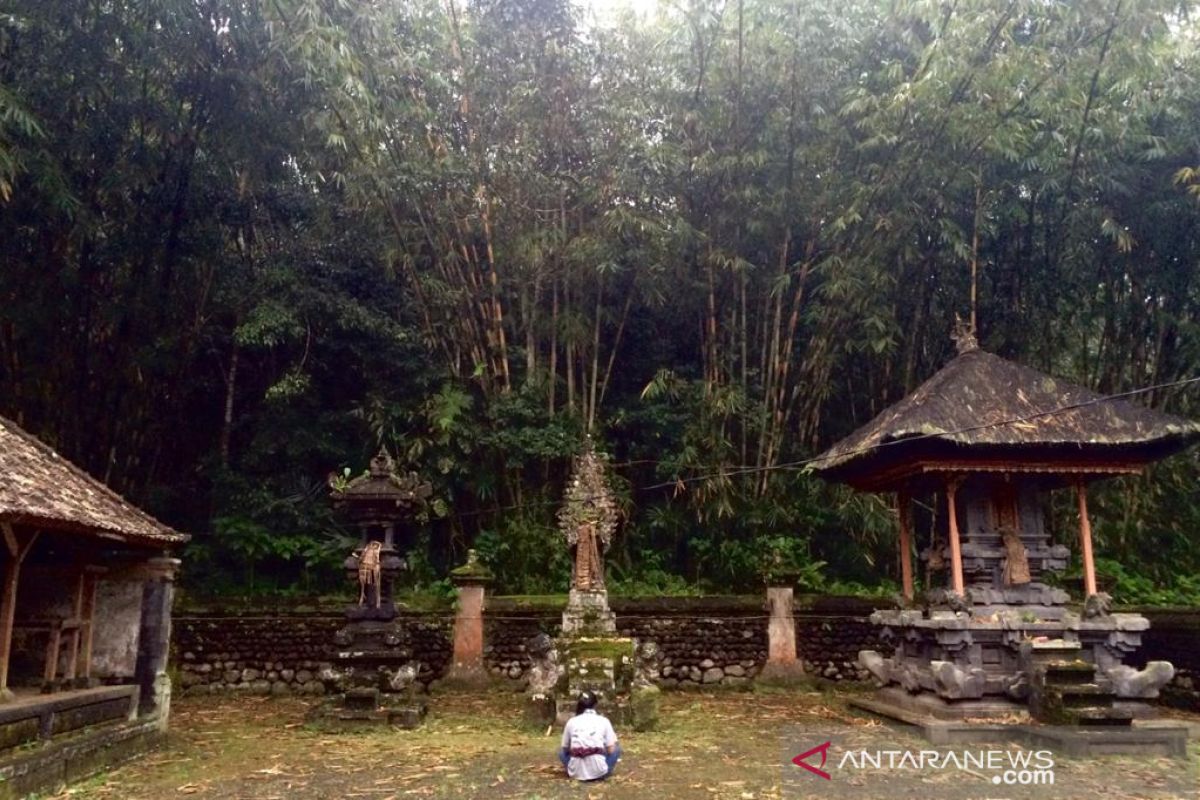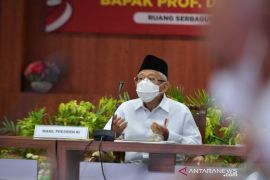I urge Hindus to only practice important rituals (at the temple) and pray at home. Let's do our routine meditation at home, praying at home, our prayers will vibrate positive energy to the community, the country, and the world we're living in. Om sanJakarta (ANTARA) - In the time of pandemic, a visit to a religious place could potentially be a matter of life-and-death as it would involve physical contact and people-to-people encounters that are known to increase infection risk.
Therefore, many believers worldwide have, over the past month, begun adopting new styles of worship from the confines of their homes.
While Christians have begun holding prayer sessions online, which can be accessed via video conferencing or streaming platforms, Hindus have turned to meditating in their family temple (known as merajan in Balinese language), or a corner inside the compound of their home.
"I choose to pray in my room instead of visiting the temple. I don't want to risk getting infected by the coronavirus," said Wiguna, a Hindu worshiper of Balinese descent living in Jakarta.
The Indonesian capital of Jakarta has been one of the epicenters of the COVID-19 outbreak in the country.
Following daily reports of the coronavirus in Indonesia, including in Jakarta, Wiguna, a father of two daughters, has every reason to stay at home and not attend daily mass prayers at the temple.
"It's still possible for us to practice our three-time prayers solely at home," he explained.

Hindus in Indonesia, who reside mainly in Bali, pray thrice a day — in the morning, noon, and evening.
For each prayer, they have to sit cross-legged on the ground in a firm posture, or asana, and regulate their breathing, or perform pranayama. Next, they have to enchant Vedic mantras, also known as puja tri sandhya.
Some of the mantras they chant can be translated as: “Om is the Earth, Sky, and the Heaven. Let us meditate on the light of the sun and may our thoughts be inspired by that divine light. […] Om forgive my wrong actions, forgive my wrong speech, forgive my sinful mind, forgive me for all of my sinful misdeeds. Om may there be peace, peace, peace, Om”.
During temple prayers, a high priest leads the chanting of mantras, followed by worshipers. But, Hindu worshipers are allowed to chant mantras on their own, too.
Words from the council
The Indonesian Hindu Religious Council (PHDI) last month urged worshipers to remain at home and restrict visits to the temple. The council has said only high priests and other temple officials will be allowed to pray at temples.
"Until the pandemic is contained, Hindus are urged to pray at home," the council stated.
Om Swastyastu,
Bersama ini disampaikan Pedoman Pelaksanaan Hari Suci Nyepi Tahun Baru Saka 1942.
Om Santih, Santih, Santih Om pic.twitter.com/wyOYS6aeEb
— PHDI Pusat (@phdi_pusat) March 19, 2020
Meanwhile, a representative of the council, Nyoman Suarthanu, also gave a similar message to Hindu worshipers during a press conference aired by national television on March 28.
"I urge Hindus to only practice important rituals (at the temple) and pray at home. Let's do our routine meditation at home, praying at home, our prayers will vibrate positive energy to the community, the country, and the world we're living in. Om santi, santi, santi, om (may there be peace, peace, peace)," Suarthana said.
No flowers for the Gods
Although Wiguna has followed the council's instructions, he admitted to missing praying at the temple.
"At the temple, we pay homage to the statues of Gods and Goddesses by giving our offerings, comprising of foods, flowers," he pointed out.
Worshipers also get blessings from the high priests when they pray at the temple, he added.

“The blessing is accepted by drinking a sacred water poured by the high priest himself/herself on our head and our hands. After praying at the temple, a little rice is placed on our forehead,” he said adding, the rice represents life in Balinese Hindu.
However, Wiguna cannot practice these rituals when opting to stay at home.
Offerings for most Balinese Hindus, such as Wiguna, are of traditional importance which symbolically represent giving back to their "spirits" or ancestors, anthropologist-cum-painter Miguel Covarrubias explained in his seminal work Island of Bali, published in 1937.
Another worshiper, Ayu Khania, a Balinese resident, supported Wiguna's notions on the importance of praying at the temple.
"It's important to pray at the temple. However, I have cut my visits amid the pandemic," Khania, a Hindu worshiper living in Bali, said adding, procedures to enter the temple in Bali have become stricter than usual as officials are checking visitors' body temperatures and asking them to maintain a distance of at least one to two meters from each other.
In spite of the differences Hindu worshipers cite between praying at home and the temple, most of them say they would choose to be at home in view of safety.
"The situation has forced us to pray at home, we have no choice," Wiguna said in a cheerless tone.
Related news: Prayers at home to fight COVID-19 spread
Related news: Confucians, Buddhists urged to remain home due to coronavirus
Related news: Churches adapt to COVID-19 with online Sunday service
Editor: Gusti Nur Cahya Aryani
Copyright © ANTARA 2020












